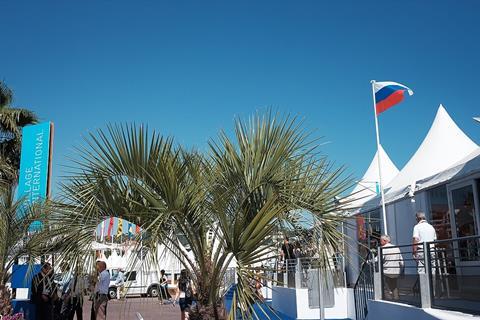Culture Ministry funds new stand with aim to increase Israeli presence at the festival.

The tension between Israel’s Ministry of Culture and the national film industry has entered a new phase following the department’s decision to sponsor a second Israeli film stand at the Cannes Film Festival.
According to the Ministry, the new stand is designed to offer a different and expanded perspective of the country’s filmmaking profile.
Judging by the careful phrasing of industry interviewed for this report, however, the move is seemingly a sensitive one.
“This is not supposed to be another Israeli stand selling and distributing Israeli films,” said Etti Cohen, head of the Film Desk at the Ministry of Culture.
“The role of the new [stand], to be inaugurated in Cannes by Culture Minister Miri Regev, is to unveil all of the activities that could not be exposed in the existing stand, such as presenting the many cinema schools in the country, displaying and analyzing the advantages offered by the Jerusalem Film Fund or organizing special events dedicated to classic Israeli films.”
The new stand was put together with funds raised by the Culture Ministry, with curator Raphael Barbibay hired to manage its activities.
According to Barbibay “this will be no longer a stand but a full-size pavilion, technologically sophisticated, fit for the internet age, hosting debates, master classes, displaying options and potential new projects offered by Israel for international productions, pitching sessions and more.”
Mixed reaction
Set be located in the Pantero area, next to Cannes’ Gare Maritime, its purpose is to establish a more visible Israeli presence in Cannes, a goal that would have been impossible to achieve, according to Barbibay, in the smaller existing stand, located in the Riviera Palace.
However, being located next to the Iranian pavilion may cause some headaches for officials.
Katriel Schory, the veteran head of the Israeli Film Fund who has manned Israel’s Ministry for Foreign Affairs-backed Riviera stand in recent years, is among those who does not see the need for the additional stand.
For him “it will be business as usual” since his stand at the entrance to the Riviera palace is central and conveniently located.
For experienced producer Marek Rozenbaum “the Riviera stand will go on being the place we work from. The new pavilion is more of a show room.”
Meanwhile Yifat Prestelnick, the head of the Producers Association, confirmed that “we have closely cooperated on the preparations for the pavilion with the Ministry of Culture.”
The decision to open a second stand is seen by some as the latest example of unwelcome government interference in the film industry.
The conflict between the recent right-wing governments in Jerusalem and the cultural elite of the country whose existence depends, to a great extent, on state subsidies, has been raging for several years, mostly in the form of verbal spats.
Culture conflict
In particular, Likkud’s hawkish culture minister Miri Regev has been at odds with many in the creative industries, whom she has described as “tight-assed, hypocritical, greedy” intellectuals who monopolise most of the financial resources offered by her funds.
Last year Regev was jeered by festival goers at the Jerusalem Film Festival where she blocked the screening of documentary Beyond Fear, about the relationship between Larisa Trembovler and Yigal Amir, the man who assassinated prime minister Yitzhak Rabin.
Regev claims that her intention is not to censor but to refrain from supporting projects considered detrimental to the interests of the state.
Accused of crass populism and of attempting to use her budget to promote her electoral interests, the clashes between Regev and the cultural community have reached strident tones, though it will take some time for the legal system to accommodate her position and arrange to divert the funds she controls in a different direction.
The new stand in Cannes signals another concrete attempt by the governemnt to put its stamp on an industry that has been remarkably successful in recent years, particularly abroad, where Israeli films have become a regular fixture in most festivals, often presenting a critical image of the country that rarely coincided with the expectations of the present regime.
























No comments yet